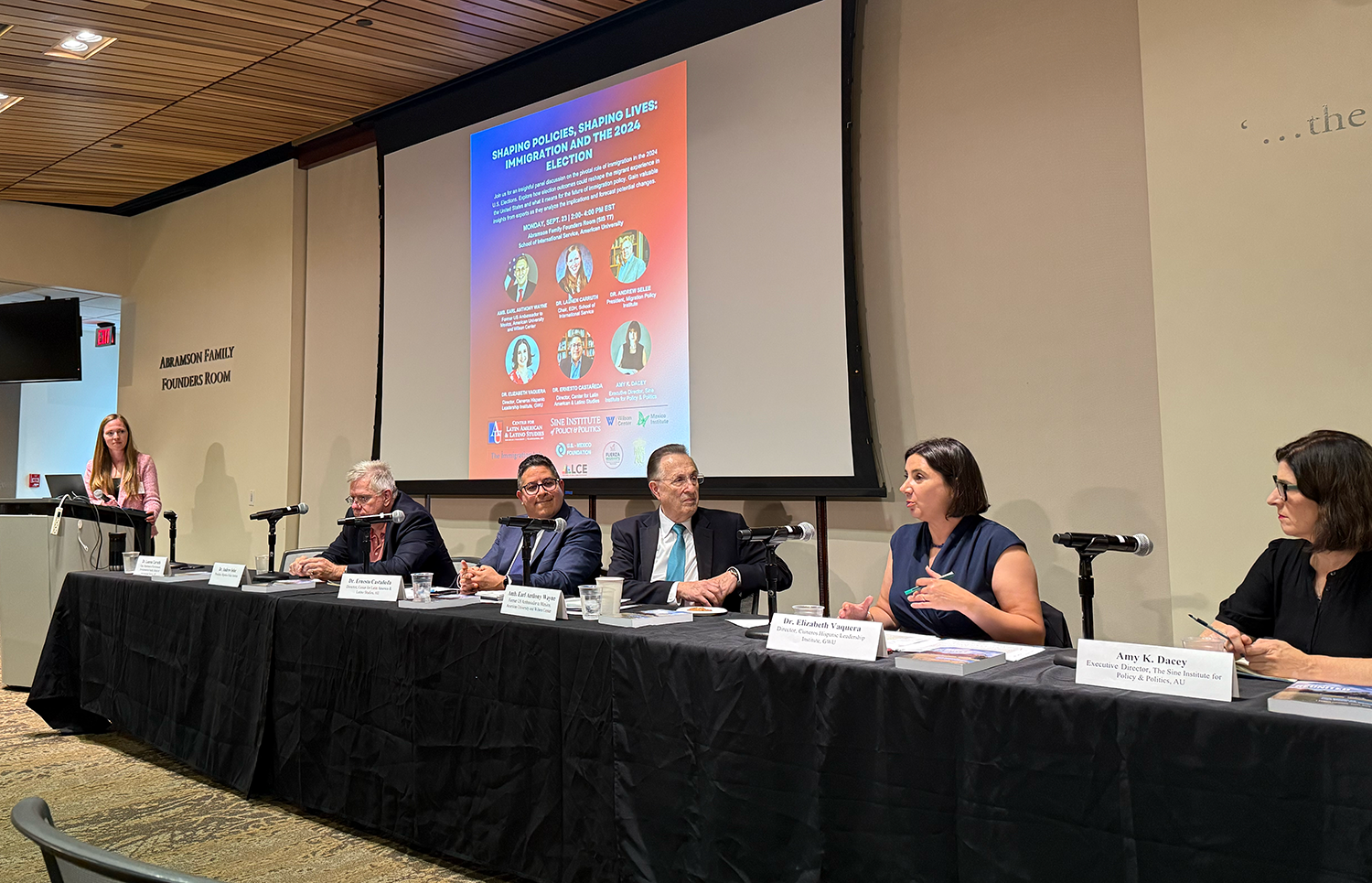On Monday, September 23, Dr. Elizabeth Vaquera, Executive Director of Cisneros Hispanic Leadership Institute, participated in a panel at American University (AU) alongside leading immigration scholars and policy practitioners. The discussion focused on the impact of U.S. immigration policies and their role in the upcoming 2024 Presidential Election.
Organized by the Center for Latin American and Latino Studies at AU, the Immigration Lab, Sine Institute of Policy & Politics, and the Wilson Center, the event entitled, “Shaping Policies, Shaping Lives: Immigration and the 2024 Election,” featured notable speakers including Dr. Ernesto Castañeda, Director of the Center for Latin American and Latino Studies; Dr. Andrew Selee, President of the Migration Policy Institute; Ambassador Earl Anthony Wayne, former U.S. Ambassador to Mexico; and Amy K. Dacey, Executive Director of the Sine Institute of Policy & Politics. The event was moderated by Dr. Lauren Carruth, Chair of the Department of Environment, Development & Health Environment at AU's School of International Service.
As Dr. Vaquera emphasized at the event, “It’s not just the policies that cause harm but the focus [on immigration] and the rhetoric that caused harm.” She highlighted a recent National Institutes of Health-funded study, Caminos al Bienestar/Pathways to Health, which has followed a cohort of 547 Latino middle schoolers and their mothers in a suburban area of Georgia since 2018. This longitudinal project tracks mental health and well-being across generations. The study’s overall findings provide evidence that U.S. immigration-related policy stressors negatively impact the well-being of immigrant families. For example, when mothers reported concerns about family separation, deportation, job and educational opportunities, and avoided police or medical care due to fear stemming from anti-immigrant news and rhetoric, this was linked to increased conflict between parents and children, as well as within households.
Furthermore, Dr. Vaquera shared findings from her recent research into the mental health and well-being impacts of U.S. immigration policies on Deferred Action for Childhood Arrivals (DACA) recipients. Despite the program's benefits, its temporary nature has significant mental health and well-being implications. Dr. Vaquera reported that, among the 51 DACA recipients interviewed, nearly one in five had attempted suicide and almost half had engaged in self-harm.
The Cisneros Hispanic Leadership Institute is grateful for the opportunity to have participated in this timely event. A special thank you to Dr. Ernesto Castañeda and the Center for Latin American and Latino Studies at AU for their role in shaping this incredible discussion!
To watch the discussion recorded and broadcast online by C-SPAN, please visit this link.
Thomas J. Rachko, Jr. serves as a Translational Research Manager at the Cisneros Hispanic Leadership Institute and Policy Lead at the Im/migrant Well-Being Scholar Collaborative. Thomas' views are his own and not necessarily reflective of the Cisneros Institute.


